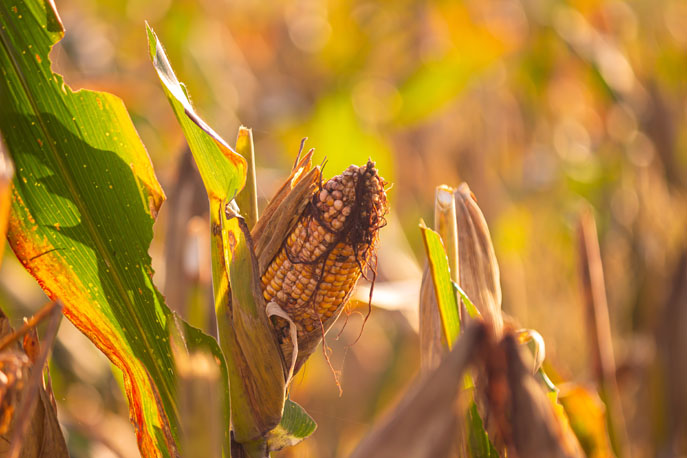COMMENT: Viktoria de Bourbon de Parme of the World Benchmarking Alliance says greater transparency about the food sector’s environmental and social impacts is a critical first step towards transformational change
Our current food system is not serving the world. Mass monoculture and industrialised production systems have improved yields and filled stomachs, but at what cost? Environmental degradation, marginalised animal welfare, human rights abuse and negative human health impacts. Despite food production being at an all-time high, every day 690 million people go hungry, while a third of food produced is wasted.
Furthermore, small-scale and subsistence farmers are left vulnerable to climate change and economic policies, and millions of consumers have limited access to affordable, healthy foods. In this system, many of the biggest food and agriculture companies have thrived, their dominance secured, and the gap widened by the ongoing Covid-19 pandemic.
However, the first year of the United Nation’s Decade for Action has also taught us that such divisions are no longer acceptable. To companies’ credit, we see many are also in agreement that something must change. This is good news, because companies have an important role to play in leading the way. For although companies are just one of the many actors that make up our food system, the scale and influence of what is a relatively small pool of global companies is critical to driving change.
A quarter of the 350 companies WBA assessed show no comprehensive commitment to contribute to more healthy, sustainable and equitable food systems
The first step in transforming the sector is knowledge. We know the system is broken, but how broken? One way to measure this is by looking at how companies currently commit to change. The World Benchmarking Alliance’s (WBA) Food & Agriculture Baseline Assessment reveals that a quarter of the 350 companies assessed are gravely lagging and show no comprehensive commitment to contribute to more healthy, sustainable and equitable food systems. We see that half of companies (54%) lack environmental commitments or disclosure on scope 1, 2 and 3 emissions. Just 12 companies show true recognition of their corporate citizenship in a holistic manner, by demonstrating leading practices across multiple dimensions.
Whether you are optimistic by the unlocked potential of the private sector or suspicious of the impact of their commitments, there is no denying the instrumental role these companies play in shaping our future.
We need the companies to open up. Opaque and unaccountable supply chains mean consumers know little of the conditions their food is produced in and the effect that has on natural resources, supply chain workers and consumers’ personal health. Often the companies themselves know little of the source or conditions of their produce past their immediate operations. This may be due to the complexity and interdependency of the food system, but also their lack of responding, measuring and reporting on it.

A promising beacon for an improved corporate reporting system comes from global reporting standards such as GRI (Global Reporting Initiative), SASB (Sustainability Accounting Standards Board), and TCFD (Task Force on Climate-related Financial Disclosures). These groups are developing shared strategies for improved sustainability disclosures beyond how these issues affect a company’s financial performance, to how a company’s action on these issues affect society and the environment.
This has huge potential when implemented in the food and agriculture system. However, alongside these rigorous and comprehensive reporting mechanisms, we need to be able to connect the data companies disclose to the food system agenda.
For this to be effective we need clear guidance on food systems transformation. The SDGs and Paris Climate Agreement play an important role in setting aspirations. Yet translating goals for the food system is proving more difficult as food sits at the intersection of climate, nature, people and health. It is also contributing to, and determined by, the world’s greatest challenges, such as climate change, biodiversity loss and widening inequalities.
Last year, the Food and Land Use Coalition (FOLU) made monumental progress in a holistic understanding when it launched Ten Critical Transitions to Transform Food and Land Use, connecting visions such as healthy diets, oceans, the digital revolution and supply issues in one determined reformed agenda.
Many companies are beginning to realise that the risks food systems face are not just humanitarian or environmental but financial
While we still lack a clear recipe for change, progress is being made. Indeed, while our baseline assessment highlighted significant room for improvement, a good majority of companies have made a first step on the journey to acknowledging their role and responsibility by publicly disclosing targets and commitments on some key issues. Many companies are beginning to realise that the risks food systems face are not just humanitarian and / or environmental but financial. In fact, achieving the results outlined in the 10 FOLU transitions would reportedly result in business opportunities worth up to $4.5tn a year by 2030.
With clever guidance, I do believe our food system can transform. I also believe business can lead this change. Business platforms, such as the Consumer Goods Forum and World Business Council for Sustainable Development, are already engaging CEOs in tackling the key challenges. Similarly, at WBA we set out to engage with all the companies we rank so our benchmarks are as much a roadmap as they are a wake-up-call.
International bodies, such as the United Nations, are also aware of the opportunity. The impetus for the UN’s 2021 Food Systems Summit in September is to push for “bold, multi-stakeholder actions” that align transformation directly with a business’ function. There is a real opportunity for companies to be in the driving seat of change. Ambition is the link that will turn commitment into actual performance. We cannot return to a simpler system; rather we need to transform it to be smarter. In the age of big data, numbers provide a guide, a north star by which a system’s progress can be measured. Now is the time to build upon then, and for companies to lead the way.

Viktoria de Bourbon de Parme is food transformation lead at the World Benchmarking Alliance.
food supply chains siustainable agriculture UN Decade of Action Covid-19 FRI SASB TCFD SDGs Paris Climate Agreement FOLU

